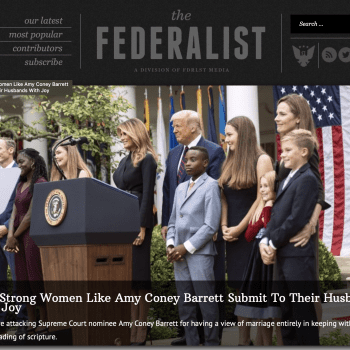Reader AnotherOne recently left the following comment:
Dude, I know I’m beating a dead horse here, but for the love of god, can we stop with the “Talibamerica” crap? The fundamentalism of the Taliban is a tiny piece of an overall picture of what the Cold War did to an impoverished country of non-literate, tribal people. The Soviet invasion and occupation and American arming of the mujahideen resulted in the death of around a million Afghans (in other words, about 1 in 30 people) and the displacement of millions more. The country was carpeted with mines, what little infrastructure existed was decimated, and when the Soviets pulled out, the country descended into civil war that saw bands of young men who were armed to the teeth and knew nothing but a lifetime of war roaming the countryside looting and raping and killing (many of them with weapons provided by the US). The Taliban were a fundamentalist response to widespread terror and violent anarchy. Yes, many of them were and are violent thugs themselves, and they got tied up into international terror, and most of them believe in some really disturbing fundamentalist crap and many do truly heinous things. But they also garnered support because back before 9/11 they actually brought stability to some regions. A harsh, fundamentalist stability, but one that was understandably appealing to people who faced constant threats to their lives and property from forces within and without their country. So please, can we not compare American fundamentalist evangelicals to the Taliban? It’s an insult to what the Afghan people have suffered. I’m happy to admit that there are similarities between religious fundamentalisms. But the contexts of American Christian fundamentalism and Afghan Muslim/Taliban fundamentalism are crazily different, and using the Taliban glibly as some sort of comparison point for all religious fundamentalisms just feeds into American political narratives about the Taliban and overall misconceptions of the situation in Afghanistan (as well as Islam, the Cold War, the War on Terror, etc., etc). Ok, off my soapbox now.
Fundamentalism occurs in specific cultural contexts and has to be understood within those contexts. It’s really easy to gloss over differences between various forms of fundamentalism, but the differences matter. Debi Pearl represents a strain of Western Christian fundamentalism, but her beliefs do not characterize all of Western Christian fundamentalism. There are some strains of fundamentalism within Western Christianity that offer women the opportunity to preach and lead churches. There is scholarly discourse about the ways women in some religious communities can find power through submission, and about the ways women find to wield influence within the system of male leadership and female submission.
I am not excusing systems that preach female submission, or fundamentalist systems that create stark insider v. outsider dichotomies. I’m not excusing any of it. All I’m saying is that we have to find ways to talk about these problems that do not elide differences or oversimplify complex issues. It is in this vein that I appreciated AnotherOne’s comment.














